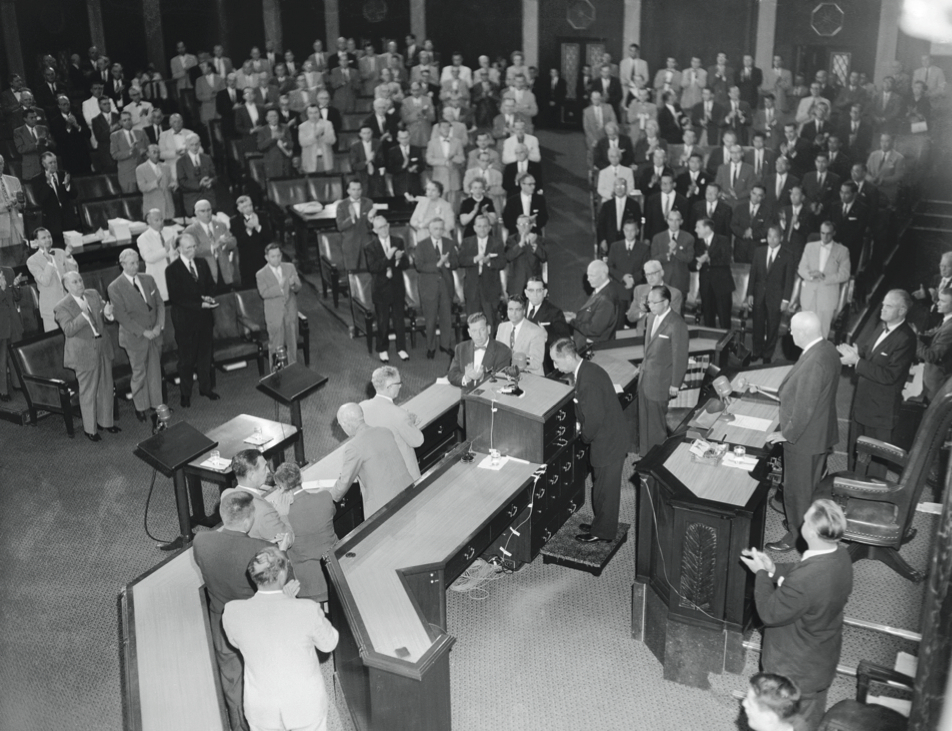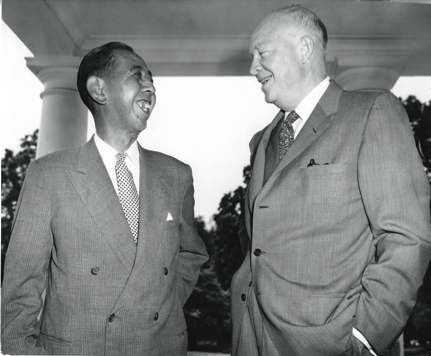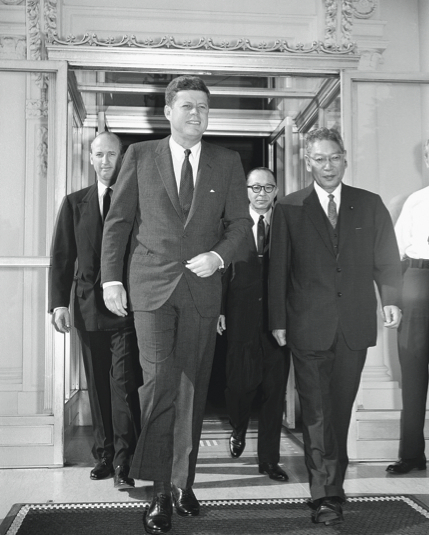The United States is a country of freedom and democracy. The first Japanese prime minister to deliver an address at the United States Congress was Shigeru Yoshida in 1954, more than 60 years ago. Later, Prime Ministers Nobusuke Kishi and Hayato Ikeda also delivered an address at the United States Congress. They all helped to strengthen the alliance between Japan and the United States and contributed to peace and prosperity in both countries and around the world.
Prime Minister Nobusuke Kishi is known for accomplishing a complete revision of the Treaty of Mutual Cooperation and Security between Japan and the United States of America ( Japan-United States Security Treaty). He was also instrumental in setting the course for a welfare state through the establishment of national pension and public healthcare systems and the introduction of a minimum wage system. Other praiseworthy achievements include the New Long-Term Economic Plan, reflation measures, and the boosting of infrastructure through the Five-Year Plan for Road Construction.
On June 20, 1957, Kishi spoke of the ideals of democracy in an address at a Senate Reception. He talked of how Japan was working together with the free countries of the world and that as an Asian democracy, the United States was its most important ally. He also passionately described his hopes for a firm and lasting friendship.
In the second half of his tenure, while Kishi was revising the Japan-United States Security Treaty, cold war tensions between the western and eastern blocs spread into Japan, bringing political instability. But the revision of the treaty helped ensure apanese security in a volatile Asia and in maintaining world peace.
Kishi’s successor as prime minister was Hayato Ikeda, known for proposing the Income-Doubling Plan. Having inherited the foundation of the Security Treaty and a social security system, Ikeda focused his efforts on boosting the economy and opening it up to the world. As a result, national income doubled in just four years, in what was dubbed an “economic miracle,” as Ikeda built a platform for Japan’s period of rapid economic growth.
On June 22, 1961, Ikeda delivered an address at a House Reception. He stressed the importance of nation-building based on democracy and stated that Japan’s economic growth through the Income-Doubling Plan had been achieved through a liberal system. He also stated that Japan would play a more active role to ensure peace and progress in the international community and that it had moved from the being a country that received support to one that provided it.
Ikeda’s other shining achievements include major improvements to the road and rail system and the successful hosting of the Tokyo Olympics, the first games held in Asia, bringing the eyes of the world on Japan and its capital city.
In the postwar era, supported by its close ties with the United States, Japan achieved peace and prosperity through national security and economic growth. Today, the fruits of that peace and prosperity are enjoyed around the world.
Prime Minister Nobusuke Kishi addresses the United States Senate (June 1957). (©Bettmann/CORBIS/amanaimages)
Prime Minister Kishi chatting with President Dwight D. Eisenhower at the White House(June 1957). (photo by AP/Aflo)

































































































































